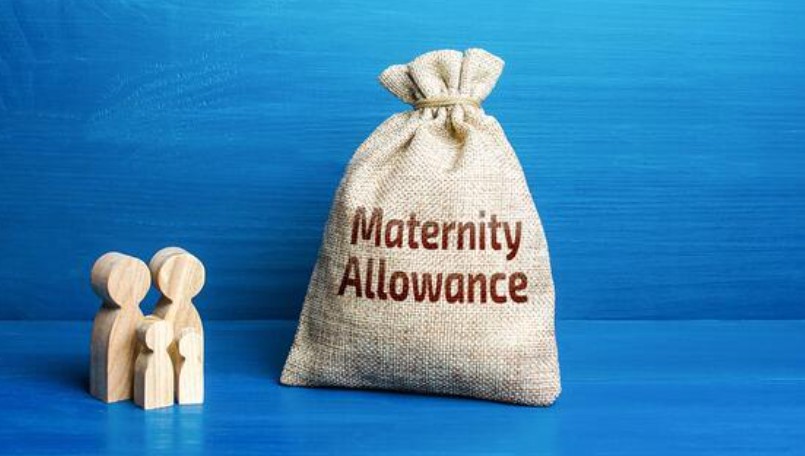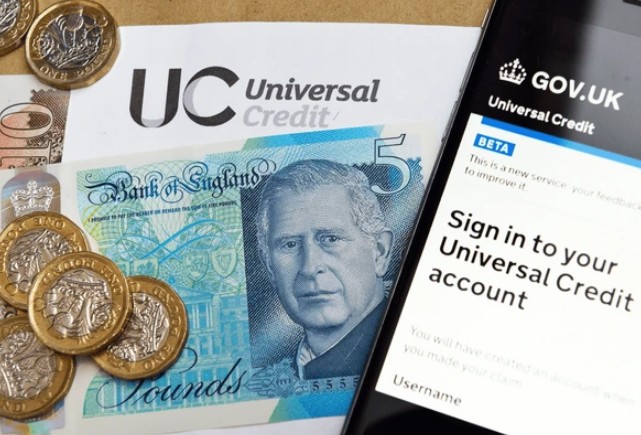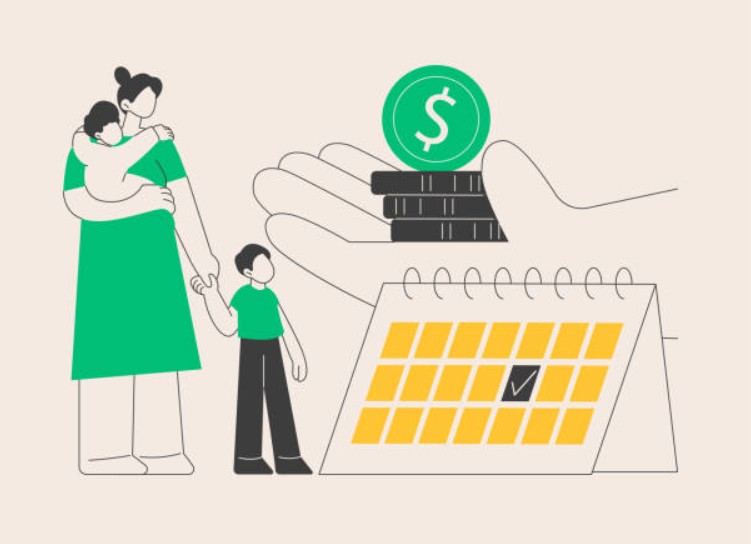Finding out you’re expecting can bring so much joy, but if you’re unemployed, it can also bring financial worry. Many expectant mums ask the same essential question: How much is Maternity Allowance if unemployed?
The good news is, in the UK, you can still receive financial help through Maternity Allowance, even if you aren’t currently working. This benefit is specially designed to support women who don’t qualify for Statutory Maternity Pay (SMP) because they’re not employed or haven’t worked long enough for a single employer.
In this updated guide for 2025–2026, we’ll explain exactly how much you can get, who qualifies, how to apply, and what additional help is available. We’ve also included a real-life story from someone who successfully claimed Maternity Allowance while unemployed.
What is Maternity Allowance and Who is it For?
Maternity Allowance is a financial benefit provided by the UK government to help pregnant women who don’t qualify for Statutory Maternity Pay from an employer. It’s aimed at women who:
- Are unemployed
- Have recently left work
- Are self-employed
- Work in casual or part-time jobs
- Are employed in jobs that don’t offer enough hours to qualify for SMP
Even if you’re not working now, you may still qualify for Maternity Allowance based on your recent work history.
This support is crucial because it ensures that women who’ve contributed to the workforce in some way—whether full-time, part-time, or self-employed—don’t go without financial help during maternity leave.
Maternity Allowance is typically paid directly into your bank account every two or four weeks and can be a vital source of income for new mothers who don’t have access to paid maternity leave through an employer.
How Much is Maternity Allowance if Unemployed in 2025–2026?
If you are unemployed but have worked within the 66 weeks before your baby’s due date, you could receive up to £187.18 per week for up to 39 weeks. This is the latest rate for the 2025–2026 benefit year.

Here’s how it works:
- Full rate: £187.18 per week or 90% of your average weekly earnings, whichever is lower.
- Partial rate: If you haven’t paid enough National Insurance contributions (mainly applies to the self-employed), you may initially receive a lower rate, usually around £27 per week, but you can sometimes top this up by paying additional contributions.
If you haven’t worked at all during the qualifying period, you won’t be able to claim Maternity Allowance. However, other benefits, such as Universal Credit, may still be available.
Important to know:
- The amount is not affected by whether you’re currently unemployed.
- It is based solely on your work and earnings history within the last 66 weeks.
Many women don’t realise they qualify because they think unemployment automatically excludes them—but in fact, part-time, agency, self-employed, and zero-hours work can all count.
Can You Still Get Maternity Allowance If You Are Not Working Now?
Yes, you absolutely can. You do not need to be employed when you apply for Maternity Allowance. What matters is whether you worked in the recent past.
You may qualify if:
- You worked for at least 26 weeks during the 66 weeks before your baby is due.
- You earned at least £30 per week for 13 of those weeks.
The work doesn’t have to be continuous, and it can include:
- Temporary jobs
- Part-time roles
- Zero-hours contracts
- Agency work
- Self-employment
This makes Maternity Allowance a crucial lifeline for women who’ve had gaps in employment or whose work history is made up of short-term jobs.
Many people wrongly assume that if they are unemployed when they apply, they won’t qualify, but this is not true. The key is whether you’ve worked enough in the lead-up to your pregnancy.
What Are the Eligibility Criteria for Maternity Allowance in the UK?

To qualify for Maternity Allowance, you need to meet three key requirements:
- Work History:
You must have worked for at least 26 weeks in the 66 weeks before your baby’s due date. These weeks do not need to be consecutive. - Minimum Earnings:
You must have earned £30 or more per week for at least 13 of those 26 weeks.
It doesn’t matter if these weeks were spaced out, worked part-time, or in casual employment. - Self-Employment Contributions:
If you’re self-employed, you must have paid Class 2 National Insurance contributions for at least 13 weeks to qualify for the full rate. If not, you may qualify for a reduced amount, but you can sometimes pay extra contributions to receive the higher payment.
If you don’t meet these requirements, you won’t be eligible for Maternity Allowance, but you might still be entitled to other benefits like Universal Credit or a Sure Start Maternity Grant.
How to Apply for Maternity Allowance in 2025–2026
You can apply for Maternity Allowance as soon as you are 26 weeks pregnant. The application process is simple, but you must provide the correct documents to avoid delays.
Step-by-Step Application:
- Get the MA1 Claim Form:
You can download this form from the UK government website or collect one from your local Jobcentre Plus. - Prepare Your Evidence:
You’ll need:- Your MATB1 certificate (your midwife will give this to you around 20 weeks pregnant).
- Proof of earnings (such as payslips or bank statements).
- National Insurance number.
- If self-employed, you may need tax records.
- Post Your Application:
Send the completed form and documents to the address listed on the MA1 form. - Processing Time:
It can take around 20 working days to process your claim, so applying early can help ensure payments start when you need them. - Payments:
Once approved, you can choose to receive payments every two or four weeks directly into your bank account.
Can You Work While Receiving Maternity Allowance?
Yes, you can work up to 10 Keeping In Touch (KIT) days without losing your Maternity Allowance.
KIT days let you:
- Attend training
- Keep up with workplace changes
- Earn extra money
- Prepare to return to work without ending your maternity period
If you work more than 10 days, your Maternity Allowance may stop, so it’s essential to keep track. If you’re self-employed, you can also use KIT days to keep your business running in small ways without affecting your payments.
What Can You Do If You Don’t Qualify for Maternity Allowance?
If you’re unemployed and don’t qualify for Maternity Allowance, you can still access other types of financial help:
1. Universal Credit:

You may be eligible for monthly payments to help with living costs. The amount depends on your household income and savings. Many unemployed pregnant women qualify for this support.
2. Sure Start Maternity Grant:
A one-off £500 grant to help with baby essentials like clothes, a pram, or a cot. You don’t need to pay this back. You may qualify if you receive certain benefits like Universal Credit or Income Support.
3. Healthy Start Scheme:
This programme provides free vitamins and weekly vouchers to help with the cost of healthy food and milk.
4. Local Council Support:
Some councils offer emergency financial help or baby starter packs for new mums with limited income.
Even if you don’t qualify for Maternity Allowance, there are other safety nets designed to support you during your pregnancy.
Real Story: Hannah’s Journey Through Maternity Allowance While Unemployed
Hannah, a 27-year-old from Sheffield, lost her job as a shop assistant early in her pregnancy. She believed that being unemployed meant she wouldn’t qualify for any maternity benefits.
“I thought that because I wasn’t working anymore, I wouldn’t get anything,” Hannah shared.
After speaking to a benefits adviser, Hannah learned that her previous part-time work and temporary jobs counted towards the Maternity Allowance eligibility. She had worked for over 26 weeks in the qualifying period and earned more than £30 per week for several of them.
“I was so relieved when I found out I could still get help,” she said. “I ended up getting the full £187.18 a week, which made a huge difference. It covered most of my rent and helped me buy the things I needed for my baby without getting into debt.”
Hannah’s experience shows that even if you are unemployed now, you might still be entitled to significant support. It’s always worth checking.
Does Maternity Allowance Affect Other Benefits?
Yes, Maternity Allowance can affect some of the benefits you might be receiving, but not all.
Here’s how:
- Universal Credit:
Maternity Allowance counts as income. This means your Universal Credit payments may be reduced while you’re receiving Maternity Allowance. - Housing Benefit and Council Tax Support:
Maternity Allowance is considered income and can slightly reduce these benefits, but usually not by much. - Child Benefit:
Maternity Allowance does not affect Child Benefit, which remains a separate entitlement. - Benefit Cap:
If your total benefits exceed the government’s benefit cap, your payments may be limited. However, pregnant women may qualify for exemptions in some cases.
It’s always a good idea to speak to a benefits adviser or contact your local Jobcentre to understand exactly how Maternity Allowance will interact with your other benefits.
When Should You Apply for Maternity Allowance?
The ideal time to apply for Maternity Allowance is as soon as you reach 26 weeks of pregnancy.
This allows plenty of time for your claim to be processed and for your payments to start on time, which can be as early as 11 weeks before your baby is due.
Applying early can help you avoid gaps in financial support and give you peace of mind as you prepare for your baby’s arrival.
Even if you are unsure whether you qualify, it’s worth applying. Many women wrongly assume they don’t meet the criteria when in fact they do.
Final Thoughts: You Might Qualify Even If You Think You Don’t
Many women miss out on Maternity Allowance because they believe unemployment automatically excludes them. The truth is, your current work status is less important than your recent work history.
If you’ve worked in any capacity in the last 66 weeks—even short-term, part-time, or self-employed—you could be eligible for up to £187.18 per week for 39 weeks in the 2025–2026 period.
The key is to check your work record, apply early, and seek advice if you’re unsure. There is more help available than you might think.






